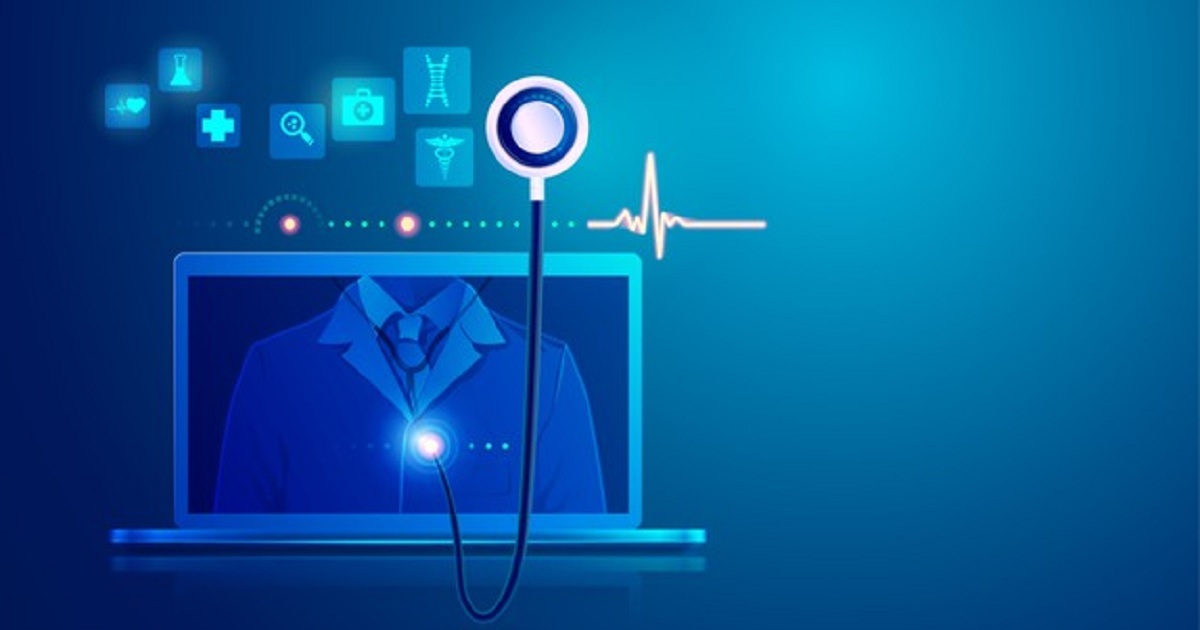
Health Technology, AI
Article | July 18, 2023
Explore latest hospital industry trends driving digital transformation, data analytics, and patient-centric care for improved outcomes and personalized experiences in a dynamic healthcare landscape.
Contents
1. Understanding Dynamic Hospital Industry Trends
2. Significance of Keeping Up with Hospital Industry Trends
3. Quick Glance at Latest Hospital Industry Trends
3.1 Cybersecurit
3.2 Virtualization and ML capabilities
3.3 Telehealth and Telemedicine
3.4 Robotics
3.5 Wearables
4. Future Scope
1. Understanding Dynamic Hospital Industry Trends
The hospital industry is undergoing dynamic changes driven by digital transformation, data analytics, and patient-centric care. Hospitals are adopting technologies like electronic health records (EHRs) and telemedicine while leveraging data analytics and artificial intelligence for better insights. Patient engagement and personalized healthcare experiences are prioritized. The shift towards value-based care and proactive population health management is evident. Collaboration, interoperability, and preventive care initiatives are also gaining importance. These emerging trends in healthcare technology reflect the industry’s commitment to improving patient outcomes in an evolving landscape.
2. Significance of Keeping Up with Hospital Industry Trends
Staying up-to-date with the latest trends in healthcare industry is of utmost importance for professionals and organizations. It enables them to deliver improved patient care by implementing cutting-edge technologies and treatment methodologies. Hospitals can streamline processes, reduce costs, and allocate resources effectively by adopting industry trends focused on operational efficiency. Keeping pace with industry trends also provides a competitive advantage, helping hospitals attract and retain patients, maintain their reputation as innovative institutions, and outperform competitors. Furthermore, staying informed about evolving regulations and compliance standards ensures hospitals remain compliant, avoiding penalties and legal issues. Industry trends also reflect the changing demographics of patient populations, allowing hospitals to adapt their services and offerings accordingly. This knowledge aids in strategic decision-making, enabling administrators to align their strategies with the evolving healthcare landscape. Additionally, staying updated on industry trends facilitates collaboration and partnerships, promoting innovation and improved healthcare delivery.
3. Glance at Latest Hospital Industry Trends
The hospital industry is experiencing a wave of the latest trends reshaping the healthcare delivery landscape. From technological advancements to shifting patient needs and evolving care models, these trends drive significant changes in how hospitals operate and provide care.
3.1 Cybersecurity
Taking the lead in hospital industry trends is cybersecurity, which plays a vital role in safeguarding the industry against cyber threats and protecting patient information, sensitive data, and critical infrastructure. By implementing a robust hospital cybersecurity policy, patient data confidentiality, integrity, and availability can be ensured, along with mitigating the financial and reputational damages that can arise from cyberattacks. Furthermore, cybersecurity measures enable the continuity of healthcare services and foster patient trust. Prioritizing cybersecurity helps hospitals maintain compliance with data protection laws like HIPAA and strengthen relationships with patients and other stakeholders.
3.2 Virtualization and ML Capabilities
Next in line with hospital industry trends is the adoption of virtualization and machine learning (ML) capabilities that are revolutionizing healthcare operations and patient care. Virtualization allows hospitals to optimize infrastructure, reduce costs, and enhance resource utilization by creating virtual instances of hardware and software. Concurrently, ML algorithms analyze vast amounts of healthcare data, such as electronic health records and medical images, enabling accurate diagnoses, personalized treatments, and predictive insights. The integration of virtualization and ML facilitates remote healthcare services, ensures data security and privacy, and drives operational efficiency, ultimately leading to improved patient outcomes and streamlined healthcare delivery.
3.3 Telehealth and Telemedicine
The rapid adoption of telehealth and telemedicine, which will transform healthcare delivery, is on the horizon for the hospital industry. These technologies enable convenient access to healthcare services, especially for individuals in remote areas, reducing travel time and costs. Telehealth and telemedicine improve healthcare efficiency by reducing wait times, allowing timely medical advice, prescription refills, and follow-up care. They also facilitate collaboration among healthcare providers and specialists, ensuring access to specialized care. In emergencies, telehealth and telemedicine in the hospital industry enable real-time triage and remote monitoring. Despite challenges related to regulatory compliance and data security, telehealth and telemedicine have transformed healthcare delivery, offering convenience, efficiency, and expanded access to care.
3.4 Robotics
The integration of hospital robotics is reshaping the industry, revolutionizing surgical procedures by enabling exceptional precision and significantly reducing recovery times. Surgical robots assist in complex surgeries, improving accuracy and patient outcomes. Additionally, robots streamline tasks like medication dispensing and inventory management, reducing errors and freeing up healthcare professionals. Rehabilitation robots aid patients in regaining mobility, while robotic telepresence enables remote consultations and monitoring. Despite challenges such as implementation costs and regulatory considerations, robotics continues to transform healthcare delivery, enhancing patient care and operational efficiency.
3.5 Wearables
The widespread adoption of wearables, emerging prominently in the hospital industry, redefines patient care and monitoring practices. Wearable devices, such as smartwatches, fitness trackers, and remote patient monitoring devices, offer real-time health data and enable continuous monitoring of vital signs, activity levels, and sleep patterns. These devices provide valuable insights into a patient's health and allow for early detection of potential health issues. Wearables promote patient engagement and empowerment by encouraging individuals to manage their health actively. Healthcare professionals can remotely monitor patients' health status, track medication adherence, and intervene promptly if abnormalities are detected. Additionally, wearables offer opportunities for remote patient monitoring, telemedicine consultations, and personalized health interventions.
4. Future Scope
The potential of hospital industry trends in the coming years also encompasses genomics and personalized medicine advancements. With an increasing understanding of genetic factors in health and disease, hospitals can offer tailored treatments based on an individual's unique genetic makeup, leading to a revolution in disease prevention, diagnosis, and treatment. Furthermore, integrating blockchain technology in healthcare is expected to enhance data security, interoperability, and patient privacy, enabling seamless sharing of medical records across healthcare providers. Overall, the horizon of the hospital industry holds immense promise for innovative technologies, data-driven insights, and patient-centric care models, all contributing to the development of a more efficient, accessible, and personalized healthcare ecosystem.
Read More

Healthtech Security
Article | November 29, 2023
Do you know you can now wear technology?
With the help of wearable technology, it's now easier to keep track of useful information in one go! This go-to technology has made people’s lives easier and smoother health-wise.
In the last five years, more people have started using wearable technology to monitor health data and live healthier lifestyles.
According to the Deloitte Global Survey, today, more than 80% of people are interested in using wearable technology. Statista also studied that the ear-worn wearable technology market will be worth more than 44.16 billion US dollars by 2023. These data show that customers are gravitating toward wearable technology due to its simplicity and convenience.
The Tech is Getting Smarter
Wearable technology has enabled the concept of self-checking, evaluation and monitoring of certain health conditions.
The Internet of Things (IoT) technology is transforming and improving the entire lifestyles of millions of people. So it's no surprise that the technology is spreading. Thanks to IoT and AI, which have pushed these technologies into individuals’ hands in the form of smartwatches, fitness bands, and other devices. In this case, app development has also been a critical success factor.
Consumers of all age groups actively use wearable technology for multiple physical benefits, such as monitoring daily activities (running, walking), water intake, heartbeat, sleep cycles, blood pressure, oxygen level, and mobility levels. In fact, the tech helps them to stay motivated by maintaining and extending their good habits.
Wearables can measure these characteristics through an effective data model that is instantly responsive. The readings can be saved, displayed, or forwarded to a doctor for medical study. This interface of wearable technology saves money and time traveling to clinics, hospitals, GPs, and other medical facilities.
The next feature that only wearable technology provides is reminders and inspiring information! Due to the addition of automatic functionalities, users have invested considerably in wearables and sparked the usage at the current time.
Furthermore, wearable technology is also seen in other medical devices such as ECG monitors, which is again a cutting-edge consumer electronic device that users can use to measure electrocardiograms at home. A Deloitte study found that due to the rising demand and supply together, nearly 200 million wearable gadgets will be marketed globally by 2023.
Transforming Healthcare Towards Intelligence
The pandemic accentuated the importance of wearable technology the most, particularly for health monitoring. As a result, the technology was available in every second home.
Wearable innovation is exceptional with the advancements in sensors, artificial intelligence, machine learning, and algorithms. Sensor data provides insights regarding an individual's activity levels, cardiac pattern discrepancies, and other aspects. For example, many companies and manufacturers employ PPG, Raman spectroscopy and infrared spectrophotometers to enable blood pressure monitoring features in smartwatches and portable medical devices.
The combination of technology with intelligence is creating a whole new world of healthcare where individuals can track, record, and improve their health issues in a lesser timeframe.
A Committed Future of Healthcare
So, will technology for health improvement thrive?
The answer is yes. Wearable technology delivers real-time health data and allows consumers to improve their health without incurring high costs. Consumers' willingness to share their data with healthcare professionals indicates a surge in future demand for wearable technology gadgets.
Read More

Health Technology, Digital Healthcare
Article | August 16, 2023
Long-term care comprises all the health services that help patients with chronic illnesses or disabilities meet their medical and non-medical needs. It caters to those who cannot care for themselves for extended durations. For care providers, it becomes critical to meet the needs of patients on time while delivering top-notch quality, especially at a time when virtual care is more important than ever.
To remedy this, many of the tasks and processes within long-term care are supported by digital solutions. These long-term care software applications enable care providers to automate aspects of patient scheduling, inventory control, regulation and compliance, data management, care delivery management, and much more. Some of the end users of long-term care software include home healthcare agencies, nursing homes, and residential hospice care facilities.
What is Driving the Growth of Long-Term Care Solutions?
Digitalization has swept the healthcare industry, and medical technology now occupies a significant area of medical care delivery. With the demand for a robust healthcare infrastructure aggravated by a shortage of medical professionals, the need for automation is driving the growth of medtech across all areas of healthcare. In addition, fewer medical specialists and medical cost reduction initiatives combined are powering the long-term care software market’s growth.
Challenges for the Long-Term Care Software Market
Despite the rapid growth in the use of digital solutions to manage administrative and compliance tasks, technological transformations are expensive. The high maintenance costs incurred by care providers are a major hindrance towards a full-fledged adoption. Many care providers are also unwilling to adopt new applications due to the implementation and staff training costs involved in doing so.
What the Future Holds?
With an increase in remote care and the use of technologies like the Internet of Medical Things to deliver diagnostic services and preventive care, medtech is witnessing a revolution. Long-term care is bound to follow suit thanks to areas like remote patient monitoring and wearable technology. While the long-term care market is slated to grow by leaps and bounds, solution makers must find a way to help care providers warm up to the use of technology and de
Read More

Health Technology
Article | August 12, 2022
Introduction
Over the past couple of years, there has been a substantial rise in the burden of chronic conditions and treatment costs, along with the growing elderly population, which is transforming the healthcare sector at a rapid pace. As per a study, healthcare spending across the globe is anticipated to reach an unprecedented value to total US$ 18.3 trillion by 2030. In response to these trends, volume-based payment models are being replaced by outcome- or value-based models.
Predictive analytics helps health organizations to get in line with these new models and improve patient care and outcomes. From predicting critical conditions such as heart failure and septic shock to preventing readmissions, the recent advancements in big data analytics are boosting the adoption of new predictive analytics solutions that aid clinicians improve outcomes and cut costs.
Predictive analytics in healthcare is most helpful with clinical care, administrative tasks, and managing operations. More importantly, the technology is already making a difference in a wide range of healthcare settings, from small private doctor's offices and large academic hospitals to healthcare insurance companies.
How is Growing Healthcare Data Favoring the Penetration of Predictive Analytics?
The growing inclination toward digitalization in the healthcare industry has led to the creation of huge new data sets. These include radiology images, electronic medical record (EMR) systems, lab results, and health claims data. The amount of data is expected to reach new avenues with increasing genomics and cytogenesis research data in the near future.
New data is being generated and collected by the novel medical devices at the edge, such as monitors and patient wearables. In addition, outside the healthcare setting, patients are generating quasi-health data through the use of health monitoring applications, fitness trackers, and personal wearable devices.
By using data from these sources, health care providers can find new ways to use predictive modeling for health risks, predictive analytics for medical diagnosis, and prescriptive analytics for personalized medicine.
Predictive analytics has become a crucial component of any strategy for health analytics. Today, it's an essential tool for measuring, combining, and making sense of biometric, psychosocial, and behavioral data that wasn't available or was very hard to get a hold of until recently. Here are some of the applications of predictive analytics for healthcare
Identifying Patients at Risk
Clinical Predictions
Disease Progression and Comorbidities
Predicting Length of Stay
Speeding Treatment of Critical Conditions
Reducing Readmissions
The Future Story
With the growing prominence of innovative technologies across the healthcare industry, a number of health IT providers are focusing on developing their own analytics software and engines to assist healthcare spaces deliver optimal patient care.
For instance, in 2020, Eversana, a U.S.-based provider of innovative solutions to the life sciences industry, announced the introduction of its ACTICS predictive analytics solution, which enables clinical spaces to combine multiple data sources into a single comprehensive system.
Also, some U.S. companies are partnering with healthcare institutions to develop proprietary algorithms designed to enhance organizational performance, improve clinical care, and increase operational efficiency. Such developments are projected to increase the popularity of predictive analytics solutions in the healthcare sector in the coming years.
Read More